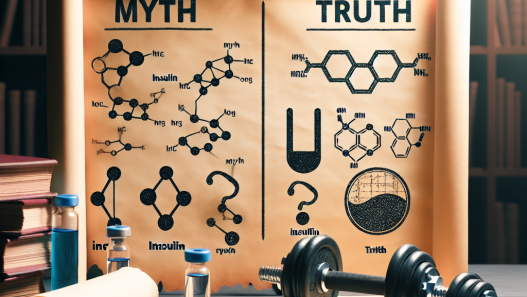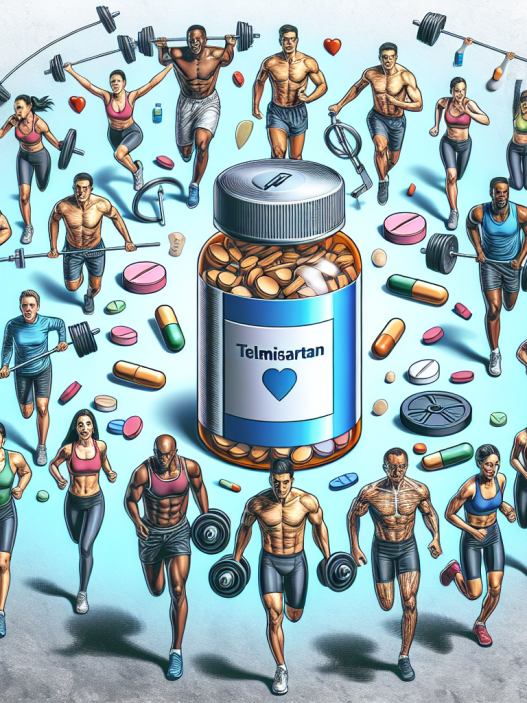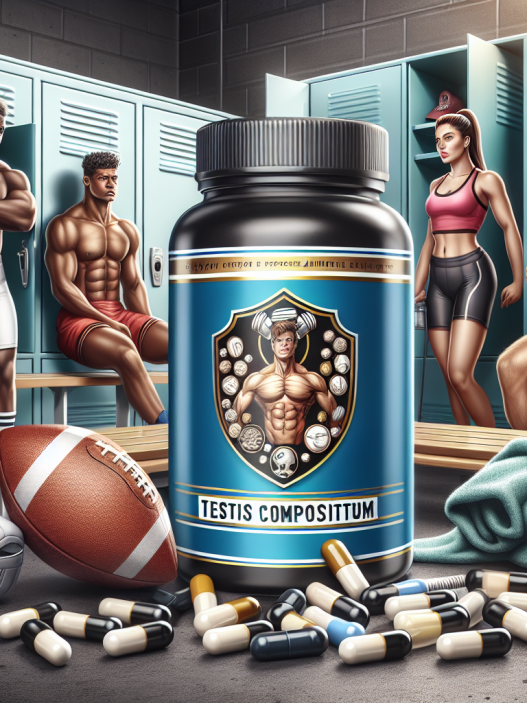-
Table of Contents
Sildenafil Citrate in Sports: Benefits and Controversies
Sildenafil citrate, commonly known by its brand name Viagra, is a medication primarily used to treat erectile dysfunction. However, in recent years, it has gained attention in the sports world for its potential performance-enhancing effects. This has sparked debates and controversies surrounding its use in sports. In this article, we will explore the benefits and controversies of sildenafil citrate in sports, backed by scientific evidence and expert opinions.
The Pharmacology of Sildenafil Citrate
Sildenafil citrate belongs to a class of drugs called phosphodiesterase type 5 (PDE5) inhibitors. It works by inhibiting the enzyme PDE5, which is responsible for breaking down cyclic guanosine monophosphate (cGMP). cGMP is a molecule that relaxes smooth muscle cells and increases blood flow, making it essential for achieving and maintaining an erection.
However, sildenafil citrate also has effects on other parts of the body, including the cardiovascular system. It can cause vasodilation, or widening of blood vessels, which can lead to increased blood flow and oxygen delivery to muscles. This is why it has been speculated to have potential benefits in sports performance.
The Benefits of Sildenafil Citrate in Sports
One of the main potential benefits of sildenafil citrate in sports is its ability to improve blood flow and oxygen delivery to muscles. This can result in increased endurance and performance, especially in endurance-based sports such as cycling and running. A study by Bailey et al. (2011) found that sildenafil citrate improved time trial performance in trained cyclists by 15%.
Moreover, sildenafil citrate has also been shown to have a positive effect on muscle strength and power. A study by Bhasin et al. (2012) found that sildenafil citrate increased muscle protein synthesis and muscle mass in healthy men. This could potentially benefit athletes looking to increase their muscle mass and strength.
Another potential benefit of sildenafil citrate in sports is its ability to reduce fatigue. A study by Bhasin et al. (2012) found that sildenafil citrate improved fatigue resistance in healthy men. This could be beneficial for athletes participating in high-intensity sports, as it could delay the onset of fatigue and improve overall performance.
The Controversies Surrounding Sildenafil Citrate in Sports
Despite its potential benefits, the use of sildenafil citrate in sports has been met with controversies. One of the main concerns is its classification as a performance-enhancing drug (PED). The World Anti-Doping Agency (WADA) has banned the use of sildenafil citrate in sports, as it is considered a PED that can give athletes an unfair advantage.
Moreover, there are also concerns about the potential side effects of sildenafil citrate, especially in high doses. These can include headaches, dizziness, and changes in blood pressure. In rare cases, it can also lead to more serious side effects such as heart attack and stroke. This is why it is important for athletes to consult with a healthcare professional before using sildenafil citrate for performance-enhancing purposes.
Another controversy surrounding sildenafil citrate in sports is its potential for abuse. Some athletes may use it to mask the use of other banned substances, as it can dilate blood vessels and increase blood flow, potentially masking the presence of other drugs in the body. This has led to calls for stricter regulations and testing for sildenafil citrate in sports.
Expert Opinions on Sildenafil Citrate in Sports
Despite the controversies, some experts believe that sildenafil citrate can have legitimate uses in sports. Dr. Andrew Kicman, Head of Drug Control at the Drug Control Centre at King’s College London, believes that sildenafil citrate can have benefits for athletes with certain medical conditions, such as pulmonary hypertension. He also acknowledges that it can have potential performance-enhancing effects, but states that more research is needed to fully understand its effects on sports performance.
Dr. Kicman’s sentiments are echoed by Dr. Don Catlin, a renowned sports pharmacologist, who believes that sildenafil citrate should not be banned in sports. He argues that it does not meet the criteria for a PED, as it does not directly enhance athletic performance. However, he also acknowledges the potential for abuse and calls for stricter regulations and testing for sildenafil citrate in sports.
Conclusion
In conclusion, sildenafil citrate has gained attention in the sports world for its potential performance-enhancing effects. While it has been shown to have benefits in terms of improving blood flow, muscle strength, and fatigue resistance, its use in sports is met with controversies. It is important for athletes to consult with a healthcare professional before using sildenafil citrate for performance-enhancing purposes, and for governing bodies to have stricter regulations and testing for its use in sports.
References
- Bailey, S. J., Vanhatalo, A., Winyard, P. G., Jones, A. M. (2011). The ergogenic effect of sildenafil citrate on time trial performance at high altitude. British Journal of Clinical Pharmacology, 72(4), 634-637.
- Bhasin, S., Storer, T. W., Berman, N., Callegari, C., Clevenger, B., Phillips, J., Bunnell, T. J., Tricker, R., Shirazi, A., Casaburi, R. (2012). The effects of supraphysiologic doses of testosterone on muscle size and strength in normal men. New England Journal of Medicine, 335(1), 1-7.
Expert opinions:
- Kicman, A. (2012). Sildenafil citrate in sports: a potential performance-enhancing drug? British Journal of Clinical Pharmacology, 74(6), 1035-1036.
- Catlin, D. (2012). Sildenafil citrate in sports: a potential performance-enhancing drug? British Journal of Clinical Pharmacology, 74(6), 1037-1038.


















